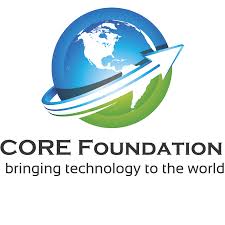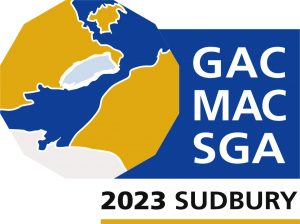Course/Workshop Description
Industrial challenges can be effectively addressed with the help of academic, government, community and private sector partners. Local industries do not need to work in isolation in developing and implementing remediation measures. Sudbury, Ontario, Canada is a model for the value of having a very high degree of community buy-in and community participation.
The Environmental Remediation course and field trips are multidisciplinary, integrating environmental and social sciences to guide participants through an overview of the history of damage and environmental recovery of the mining-impacted landscape around Sudbury. The application of established and new innovative techniques in remediation, soil rehabilitation, pollutant neutralization and sequestration, biomining, and the creation of novel ecosystems is reviewed and critically examined. The course features current and ongoing research initiatives and outlines ongoing challenges while making the science and methods transferable to other damaged sites globally.
Learning Outcomes
- Learn through a multidisciplinary investigation of Sudbury's historical environmental degradation and decades of innovation how we have restored terrestrial and aquatic ecosystems and use remediation strategies in managing mining-impacted environments.
- Understand the importance of Sudbury’s restoration and scientific innovation within Canada’s mining sector and globally.
- Integrate understanding of ecosystem connectivity and multiple stressors.
- Understand mining impacts and environmental remediation practices.
Course Modules
- Module 1: Sudbury History: Mining and Environmental Damage
- Module 2: Environmental and Soil Contamination
- Module 3: Revegetation and Ecological Restoration
- Module 4: Terrestrial and Aquatic Linkages to Ecosystem Recovery
- Module 5: Mine Waste Management: Legacy Challenges and Current Approaches
- Module 6: Transfer of Sudbury Remediation Science to Global Site
What happens when you arrive in Sudbury?
Laurentian University has organized a series of activities where participants are able to experience the Sudbury success story first-hand, the challenges that remain, and the efforts of ensuring continued environmental remediation. We will then work together to guide and help your team build your environmental strategies. At the end of the workshop, participants will receive a Goodman School of Mines Professional Development Certificate of Participation.
Saturday, May 27, 2023
- AM - Sudbury hotel check-in
- PM - Welcome Dinner
Sunday, May 28, 2023
| Schedule |
Details |
| 8:00am - 3:00pm |
Introduction and course objectives - Module 1: Sudbury History: Mining and Environmental Damage |
| 3:00pm - 5:00pm |
Tree planting activity |
Monday, May 29, 2023
| Schedule |
Details |
| 8:00am - 4:00pm |
Module 2: Environmental and Soil Contamination |
| 4:00pm - 5:00pm |
Field Trip: Soils contamination |
Tuesday, May 30, 2023
| Schedule |
Details |
| 8:00am - 4:00pm |
Module 3: Revegetation and Ecological Restoration |
| 4:00pm - 7:00pm |
Laurentian University Campus Visit & Dinner |
Wednesday, May 31, 2023
| Schedule |
Details |
| 8:00am - 4:00pm |
Field Trip - Tailings |
Thursday, June 1, 2023
| Schedule |
Details |
| 8:00am - 4:00pm |
Module 4: Terrestrial and Aquatic Linkages to Ecosystem Recovery |
| 4:00pm - 7:00pm |
BBQ & Networking at the Vale Living with Lakes Center |
Friday, June 2, 2023
| Schedule |
Details |
| 8:00am - 4:00pm |
Module 5: Mine Waste Management: Legacy Challenges and Current Approaches |
| 8:00am - 4:00pm |
Canadian Leisure Activity (Hike, Canoe or other) |
Saturday, June 3, 2023
| Schedule |
Details |
| 8:00am - 12:00pm |
Module 6: Transfer of Sudbury Remediation Science to Global Sites |
| 1:00pm - 4:00pm |
Discussion/Workshop - applying information, Evening Boat Cruise on Ramsey Lake, Farewell Dinner |
Sunday, June 4, 2023
- Guests depart from Sudbury.


Laurentian University, Sudbury, Ontario, Canada
Contact Us
For questions, registration for workshops and inquiries, please contact our Administrative Assistant: Denyse Leroy 705.675.1151 ext. 7222.
goodmanschoolofmines@laurentian.ca




